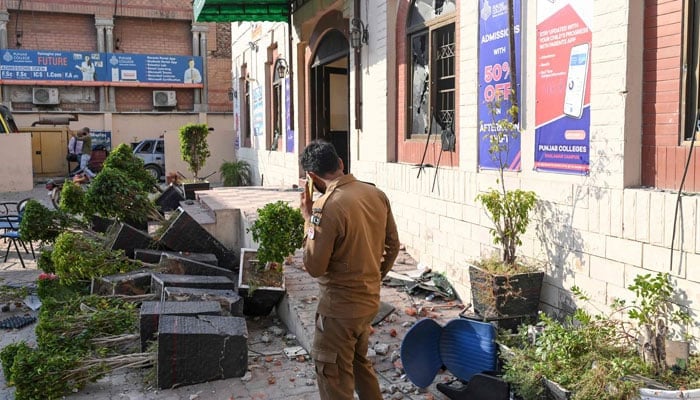LAHORE: A joint fact-finding mission by the Human Rights Commission of Pakistan (HRCP) and the AGHS Legal Aid Cell has found it cannot confirm the widespread allegations of a student being sexually assaulted at a private college in Lahore. This conclusion comes from a lack of forensic evidence and credible testimonies.
Last month, social media was flooded with reports about the alleged rape of a student. This led police to arrest a security guard from the college. However, the suspect denied the accusations, and the victim remains unidentified and unlocated.
In response to the alleged incident, students protested outside several colleges in Lahore. These demonstrations resulted in injuries to many students and spread to other regions of Punjab, where police arrested hundreds of participants.
Following the unrest, the Lahore police filed a first information report (FIR) against those spreading misinformation and unverified news online. This FIR was filed under section 20 of the Prevention of Electronic Crimes Act, 2016, addressing “offences against dignity of a natural person.” Other charges include section 354 (assault with intent to outrage modesty), 500 (defamation), 501 (printing defamatory material), and 505 (public mischief).
The HRCP’s fact-finding report included members such as journalist Fatima Razzaq and AGHS staff like Robina Shaheen, Qamar Ramay, and Rahat Gull. The mission aimed to investigate the facts surrounding the alleged incident, assess police involvement, and determine if there were previous reports of harassment or sexual abuse against the alleged perpetrators.
The report noted that recent events have created significant suspicion and mistrust among students at the college. “A wave of unverified social media claims of rape, conflicting statements from officials, and the delayed response from the college administration have contributed to this environment,” the report said.
The mission condemned the “disproportionate force” used against students protesting on October 14, who were demanding justice for the alleged victim of rape. It also highlighted how some parties seemed to manipulate the students’ narrative for their own social media agendas.
Students expressed serious dissatisfaction with campus safety and the perceived prevalence of sexual harassment and victim-blaming. This was worsened by the college administration’s lack of initiative to address these issues and a deep mistrust in both the police and the college.
The mission emphasized that while misinformation played a role, the anger of the students should not be dismissed. They called for regular public campaigns to promote digital literacy and fact-checking.
Among other recommendations, the mission urged a forensic examination of CCTV footage from the college recorded in early October. It also called for accountability for police violence against student protesters and criticized the detention of an individual accused of the alleged offense without an FIR.
Most importantly, the mission stressed that concerns about harassment and sexual violence on campus must always be taken seriously. They advocated for effective anti-harassment committees on all campuses, ensuring students can report issues confidentially.


